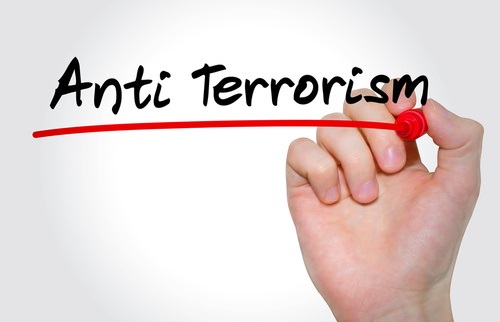Introduction
Terrorism remains a pressing global concern, posing significant challenges to governments worldwide. India, with its diverse socio-cultural landscape and geopolitical complexities, is particularly vulnerable to terrorist activities. The Indian legal system plays a crucial role in countering terrorism, but it grapples with numerous challenges that impede its effectiveness. This essay will explore these challenges and propose strategies to enhance the legal framework’s efficacy in combating terrorism.
Historical Context
India has a long history of dealing with terrorism, dating back to pre-independence struggles and continuing through various insurgencies and separatist movements. Post-independence, terrorism manifested in various forms, including religious extremism, ideological insurgency, and separatist movements. Major incidents like the 1993 Mumbai bombings, the 2008 Mumbai attacks, and numerous others have underscored the persistent threat of terrorism in India.
Legislative Framework
The legal framework for counterterrorism in India comprises various laws, including the Unlawful Activities (Prevention) Act (UAPA), the National Investigation Agency (NIA) Act, and amendments to the Indian Penal Code (IPC). While these laws provide legal mechanisms to combat terrorism, they have drawn criticism for potential misuse and human rights violations.
One significant challenge is the definition of terrorism itself. The UAPA’s broad definition of terrorism has been criticized for its ambiguity, potentially allowing for the misuse of anti-terrorism laws against political dissenters and marginalized groups. Striking a balance between national security concerns and safeguarding civil liberties remains a persistent challenge for Indian lawmakers.
Judicial Challenges
The judiciary plays a vital role in upholding the rule of law and ensuring that counterterrorism measures comply with constitutional principles and international human rights standards. However, the Indian judiciary faces several challenges in adjudicating terrorism cases.
One challenge is the prolonged duration of trials, often resulting in delayed justice and prolonged detention of suspects. The backlog of cases in Indian courts exacerbates this issue, hindering timely justice delivery. Additionally, the adversarial nature of the legal process and the complex nature of terrorism cases pose challenges for prosecutors and defense lawyers alike.
Law Enforcement Mechanisms
Effective law enforcement is essential for countering terrorism, but Indian law enforcement agencies encounter several obstacles in this regard. Coordination between various agencies, such as state police forces, central agencies like the NIA, and intelligence agencies, is crucial but often hindered by bureaucratic inefficiencies and turf wars.
Another challenge is the lack of specialized training and resources for investigating and prosecuting terrorism cases. Developing expertise in areas like forensic analysis, cybercrime investigation, and counterterrorism operations requires sustained investment in training and infrastructure, which remains a challenge for Indian law enforcement agencies.
International Cooperation
Terrorism knows no borders, necessitating international cooperation in combating this transnational threat. India has been actively engaging with other countries and international organizations to enhance counterterrorism cooperation. However, several challenges persist in this domain.
One challenge is the lack of uniform legal frameworks and extradition treaties among countries, hindering the extradition of terrorism suspects and fugitives. Diplomatic complexities and divergent legal systems further complicate international cooperation efforts. Additionally, concerns about sovereignty and national interests sometimes impede information sharing and joint counterterrorism operations.
Recommendations for Enhancing the Legal Framework
Addressing the challenges faced by the Indian legal system in dealing with terrorism requires a multi-faceted approach. Some recommendations include:
1. Legislative Reforms: Review and amend counterterrorism laws to ensure clarity, precision, and adherence to constitutional principles and international human rights standards. Establish safeguards against potential misuse and abuse of anti-terrorism laws.
2. Judicial Reforms: Enhance the capacity of the judiciary to expedite terrorism cases through measures such as specialized courts, training for judges and legal professionals, and leveraging technology for case management.
3. Law Enforcement Capacity Building: Invest in training, resources, and technology for law enforcement agencies to improve their capacity to investigate and prosecute terrorism cases effectively. Foster greater coordination and collaboration among various law enforcement agencies at the state, central, and international levels.
4. International Cooperation: Strengthen bilateral and multilateral cooperation mechanisms for intelligence sharing, extradition, and joint counterterrorism operations. Advocate for the adoption of common legal standards and extradition treaties to facilitate the seamless exchange of information and suspects.
5. Community Engagement and Countering Radicalization: Adopt a holistic approach to counterterrorism that includes community engagement, deradicalization programs, and addressing underlying socio-economic grievances that fuel extremism. Promote inter-faith dialogue and tolerance to combat religious extremism.
Conclusion
The challenges faced by the Indian legal system in dealing with terrorism are complex and multifaceted, requiring a comprehensive and nuanced response. By addressing legislative, judicial, law enforcement, and international cooperation challenges, India can strengthen its legal framework for countering terrorism while upholding the rule of law and respecting fundamental rights and freedoms. Effective counterterrorism measures must strike a balance between safeguarding national security and protecting civil liberties, fostering a resilient and inclusive society capable of confronting the scourge of terrorism.

